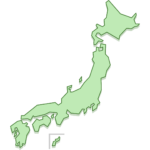
心理学入門書「ヒルガードの心理学」の章末要約(chapter summary)を日本語訳します。大学受験に向けて英語を勉強している方、心理学の勉強をしてみたい方に向けて、やさしい日本語訳を目指します。このブログは筆者の翻訳、要約であり市販されている本の転載ではありません。市販品はこちらです。
【原文】
psychology is the scientific study of behavior and mental process.
【日本語】
心理学は、行動と精神過程の科学的研究です。
【原文】
The root of psychology can be trace to the 4th and 5th centuries B.C.The Greek Philosopher Socrates,Plato,and Aristotle posed fundamental questions about the mind, and Hippocrates,the "father of medicine," made many important observation about how the brain controlled other organs.One of the earliest debates about human psychology focused on the question of whether human capabilities are inborn(the nature view) or acquired through experience(nurture view).
【日本語訳】
心理学のルーツは、紀元前4世紀と5世紀にまでさかのぼることができます。哲学者ソクラテス、プラトン、アリストテレスは心について基本的な質問を投げかけ、「医学の父」であるヒポクラテスは、脳が他の臓器をどのように制御しているかについて多くの重要な観察を行いました。初期の心理学における議論の1つは、人間の能力が生まれつきであるか(生得説の見方)、経験を通じて獲得されるか(経験説の見方)に焦点を当てられていました。
【原文】
Scientific psychology was born in the late 19th century with the idea that mind and behavior could be the subject of scientific analysis.The first experimental laboratory in psychology was established by Wilhelm Wundt at the university of Leipzig in 1879.
【日本語】
心理学は「心と行動は科学的分析の対象になりうる」という考えのもと、19世紀後半から科学として扱われるようになりました。心理学の最初の実験室は、1879年にライプツィヒ大学のヴィルヘルム・ヴントによって設立されました。
【原文】
Among the early "schools" of psychology in the 20th century were structuralism(the analysis of mental structure ),functionalism(study how the mind works so that an organism can adapt to and function in its environment),behaviorism(the study of behavior without reference to consciousness),Gestalt psychology(which focuses on the patterns formed by stimuli and on the organization of experience) and psychoanalysis(which emphasizes the role of unconscious processes in personality development and motivation).
【日本語】
20世紀の心理学の初期の「学派」の中には、構造主義(精神構造の分析)、機能主義(生物がその環境に適応して機能できるように心がどのように機能するかを研究する)、行動主義(自意識のはたらきを考慮せず、行動のみを研究対象とする)、ゲシュタルト心理学(刺激と経験の積み重ねによって形成された行動パターンに焦点を当てる)および精神分析(人格形成と動機づけにおける無意識のはたらきに注視する。)。
・so that 主語 can 「主語が〜できるように」
【原文】
Later developments in 20th-century psychology included information-processing theory, psycholinguistics, and neuropsychology.
【日本語】
その後、20世紀の心理学は、情報処理理論、言語心理学、神経心理学といった分野を包括して発展していきました。
・processing 「処理、加工」processing food 「加工食品」
【原文】
The study of psychology can be approached several perspectives. The biological perspective relates actions to events taking place inside the body, particularly the brain and nervous system. the behavioral perspective consider only external activities that can be observed and measured.The cognitive perspective is concern with mental processes, such as perceiving, remembering, reasoning, deciding, and problem solving and with relating these processes to behavior. The psychoanalytic perspective emphasizes unconscious motives stemming from sexual and aggressive impulses.The subjectivist perspective focus on how people activity construct and interpret their social worlds, which is expected to vary by culture, personal history, and current motivational state.A particular topic often can be analyzed from more than one of these perspective.
【日本語】
心理学の研究は、いくつかの視点からアプローチすることができます。生物学的観点は、行動を体内、特に脳と神経系で起こる出来事に関連付けます。行動学的視点は、観察および測定できる外部活動のみを考慮します。認知学的視点は、知覚、記憶、推論、決定、問題解決などの精神的過程を行動に関連付けて考えるものです。精神分析的観点は、性的衝動や攻撃的衝動に根ざした無意識的な動機を研究することに注力しています。主観的枠組みは、人々の活動がどのように社会的世界を構築し解釈するかに焦点を当てています。社会的世界は、文化、個人の歴史、現在の動機付けの状態によって異なると予想されます。多くの場合、特定のトピックは、これらの複数の観点から分析できます。
【原文】
The biological perspective differs from the other viewpoints in that its principles are partly drawn from biology. Often, biological principles in term of biological ones; this is known as reductionism. Behavioral phenomena are increasingly being understood at both the biological and psychological levels.
【日本語】
生物学的視点は、その原理が部分的に生物学から引き出されているという点で他の視点とは異なります。多くの場合、生物学的原理の観点からの生物学的原理。これは還元主義として知られています。行動現象は、生物学的レベルと心理的レベルの両方でますます理解されてきています。
【原文】
Among the major sub field of psychology are biological psychology, experimental psychology, developmental psychology, social and personality psychology, clinical and counseling psychology, school and educational psychology, and industrial and engineering psychology. Many new area of inquiry gaining momentum in 21st-century psychology span traditional subfields and disciplines. these new areas include cognitive neuroscience (as well as affective and social cognitive neuroscience ), evolutionary psychology, cultural psychology, and positive psychology.
【日本語】
心理学の主要なサブフィールドには、生物学的心理学、実験心理学、発達心理学、社会的および人格的心理学、臨床およびカウンセリング心理学、学校および教育心理学、および産業および工学心理学があります。21世紀の心理学で勢いを増している多くの新しい調査分野は、従来のサブフィールドと学問分野にまたがっています。これらの新しい分野には、認知神経科学(および情動的および社会的認知神経科学)、進化心理学、文化心理学、およびポジティブ心理学が含まれます。
【原文】
Doing psychological research involves generating a hypothesis and then testing it by using a scientific method.When applicable, the experimental method is preferred because it seeks to control all variables except the ones being studied and thus test hypotheses about cause and effect. The independent variable is the one that is manipulated by experimenter; the dependent variable (usually some measure of the participant's behavior) is the one being studied to determine whether it is affected by changes in independent variable. In a simple experimental design, the experimenter manipulates one independent variable and observes its effect on one dependent variable. An essential element of experimental design is the random assignment of participants to experimental group and control group.
【日本語訳】
心理学の研究を行うには、仮説を立て、科学的方法を使用してそれをテストする必要があります。(科学的方法が)適応できる場合は、対象の変数を除くすべての変数を制御し、原因と結果に関する仮説をテストで求めていくため、実験的な方法が推奨されます。独立変数は、実験者が操作する変数です。従属変数(通常は参加者の行動の何らかの尺度)は、独立変数の変化によって影響を受けるかどうかを判断するために調査されている変数です。単純な実験計画では、実験者は1つの独立変数を操作し、1つの従属変数への影響を観察します。実験計画の重要な要素は、実験群と統制群への参加者のランダムな割り当てです。
【原文】
In many experiment variable is something that is either present or absent. The simplest experimental design includes an experimental group (with the hypothesized cause present for one group of participants ) and a control group (with the hypothesized cause absent for another group of participants).If the manipulation of the independent variable result in a statistically significant difference in dependent variables between the experimental and control group, we know that the experimental condition had a reliable effect, and the difference is not due to chance factors or a few extreme case.
【日本語】
多くの実験では、変数は存在するか存在しないかのどちらかです。最も単純な実験計画には、実験グループ(参加者の1つのグループに仮説の要素が存在する)と対照グループ(別の参加者のグループに仮説の要素が存在しない)が含まれます。独立変数の操作により、実験群と対照群の間で従属変数に統計的に有意な差が生じる場合、実験条件には信頼できる効果があり、その違いは偶然の要因やいくつかの極端なケースによるものではないことがわかっています。
【原文】
In situation in which experiments are not feasible, the correlational method may be used. this method determines whether a naturally occurring difference is associated with another difference of interest. The degree of correlation between two variables is measured by the correlation coefficient, r, a number between -1.00 and +1.00. The absence of any relationship is indicated by 0; a perfect relationship is indicated by 1. As r goes from 0 to 1, the strength of the relationship increases . The correlation coefficient can be positive or negative.
【日本語訳】
実験が不可能な状況では、相関法を使用することができます。この方法は、自然に発生する差異が別の関心のある差異に関連付けられているかどうかを判別します。2つの変数間の相関度は、相関係数r(-1.00〜 + 1.00の数値)によって測定されます。関係がない場合は0で示されます。完全な関係は1で示されます。rが0から1になると、関係の強さが増加します。相関係数は正または負になります。












